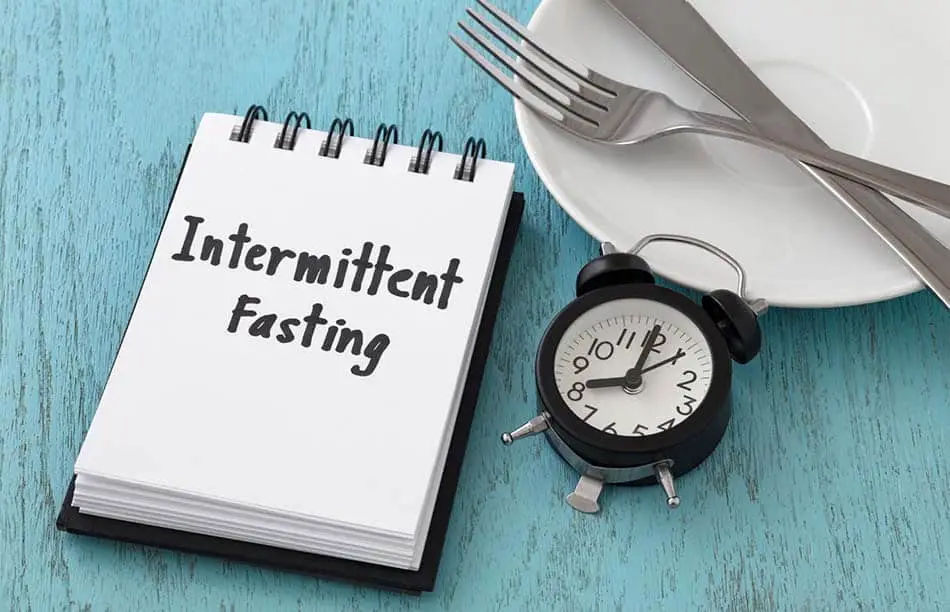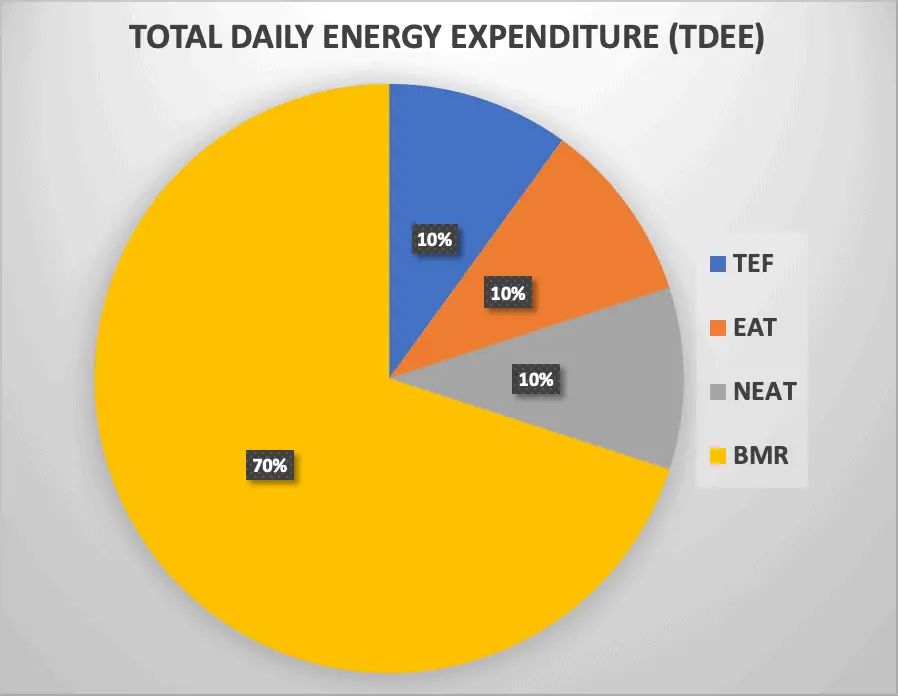
Intermittent fasting is an overused phase in the health and fitness industry and is becoming common advice for anyone looking to lose weight. There are also arguments out there that exercising whilst in a fasted state is a way to shred more fat and burn more calories than in a fed state. This is where morning exercise, such as a bike commute, combined fasting is often claimed as a silver bullet for weight loss. Is the link to fasting, morning exercise and weight loss fact or fiction?
Whilst some studies suggest there are health benefits for fasted cardio, such as bike commuting, there is no evidence to suggest that this is more beneficial for weight lost than maintaining a general calorie deficit, which is really the only ‘secret’ to fat loss.
The key issue here is that intermittent fasting, fasted cardio or any other form of ‘diet’ all rely on maintaining a calorie deificit in order for the mechanism of fat loss to occur in the body. The is, quite simply, a energy balance issue, and is determined by physics like another other form of thermal process, such as burning fuel in your car.
If there is more energy consumed than we need on a daily basis, excess energy will be stored in the body in the form of fat. In simple terms, the amount of calories we consume vs the calories we use through our daily activity needs to be balanced to maintain the current state. Consume a surplus calories consumes, above and beyond what the energy we use, and we add fat to our bodies. Consuming a deficit, compared to energy used, and we lose fat. How fat we are is a direct consequence of our behaviours and habits over a long, sustained, period of time.
The Beauty of the Bike Commute
Bike commuting is great. We are big fans and it is great for general health and a great option for the majority of people, irrespective of current fitness level, body composition, weight or strength. Cycling is low impact, so is suitable for people with joint or muscle issues and can be tailored for your fitness level, you can easily dictate the level of effort you choose to put in on a given day and the main benefit is in the fact it generally increases general movement for an individual, irrespective of the level of ‘workout’. Moving more is a healthy habit and bike commuting helps us get there.
Bike commuting is becoming more and more affordable too, with incentives offered by many schemes such as Cycle Scheme, meaning you can purchase all of the equipment you need to get started TAX-FREE and pay for it from your salary each month at a fraction of the cost without the scheme. These schemes allow you to buy your commuter bike, safety equipment, such as helmets, lights and bike locks, clothing and any other accessories within the scheme and so these schemes can be the one-stop-shop to get you up and running with bike communting. We recommend you go and look at the option available to you, they are great incentives and will save you a lot of money.
The health benefits alone of bike commuting make it an attractive option. Bike commuting can play a fundamental part in maintaining a healthy lifestyle and so is definitely beneficial to your health and wellbeing and it will help you to burn more calories than if you spent the same amount of time sat in your car during your daily commute, but it does not hold the secret to weight loss. The only way you lose weight if by maintaining a calorie deficit.
The Problem with Intermitting Fasting

The Fitness industry likes to keep you in the dark. Many of the fad diets are successfully marketed to people because they want a quick win, an easy route to the body of their dreams. Here is the real secret. All of the diets that result in weight loss, all use calorie deficit, they just package it up into a marketable product for you to consume. This way, you will keep searching for the immediate answer and keep parting with your cash. The health and fitness industry is worth billions, and is continuing to grow due to the lack of simple knowledge in the general public and education about health. We hope this article goes some way to give you knowledge about fat loss and a thirst to discover more truths.
The calorie deficit is the key and you will get bored of that phrase in this article.
This is where I have a problem with intermittent fasting and the claimed benefits of it. It ignore the fundamental problem that people who are overweight are simply eating too many calories. It presents fasting as an ultimate answer. Instead, intermittent fasting is a great tool to maintain a calorie deficit. Intermittent fasting, simply put, is just skipping a meal, usually breakfast. Is it surprising that if a person does nothing else than skip a meal, they will be consuming less calories than before. They reduce their meal intake by a third and so their calorie consumption generally reduces. The resultant fat loss is then attributed to the fasting itself but it is the deficit that elicited the fat loss. The good thing about this is that you can use it as a great tool but it shouldn’t be seen as a magic pill.
The next level of marketing, is the link between fasting and exercise. Fasted cardio is the buzz term for this. Which simply means exercising on an empty stomach. This is not revolutionary. It is something people have done before. The morning bike commute can be a great way to do fasted cardio, but the benefits should not be overstated, especially when it comes to fat loss. You do not put body fat on overnight, and you shouldn’t expect to lose it overnight either.
Intermittent fasting has many reported health benefits and is not a problem in itself. The problem with intermittent fasting is that the ‘industry’ use it, along with many other ‘diets’, to mask to true root cause of the issue and offer a quick win solution. Phrases such as ‘fast for 16 hours a day and eat what you like for 8 hours’ get misinterpreted to mean anything goes within the 8 hours. Ultimately, if the consumption in those 8 hours exceeds the amount of energy used in the day then fat gain will occur.
There is a lot of pseudo science around the subject of intermittent fasting. People will quote glycogen (blood sugar) as a fuel that is used during exercise and the body using this as a go to fuel when training. The theory of fasting, is that you will have very low blood sugar and hence your body will go after body fat to turn to as a fuel source once the glycogen has been depleted, fasting means you deplete your blood sugar faster and hence more of your exercise time is spent ‘burning fat’.
What the studies fail to mention is that in order for fat to reduce, a calorie deficit will always be needed over a sustained time period of weeks and months. If you are in a calorie excess, then the fat ‘burned’ during the exercise period will just be replenished even if the calories are consumed in the magical 8 hour window.
Intermittent is simply, skipping breakfast. Thats is. If you are trying to stick to a calorie deficit then skipping one of three daily meals can be a great strategy, unless you love breakfast that is. I regularly skip breakfast, mainly because I am less hungry in the morning and like to save the calories for the evening when my snacking cravings kick in. I don’t call this intermittent fasting, I am simply using my daily calorie allowance to fit my habits and lifestyle efficiently.
I am not demonising fasting. If it works for you to maintain a calorie controlled diet sustainably, then it could be a really key strategy for your weight loss goals but if you want breakfast, then eat it. Life is to short to be unhappy, Eat breakfast and save those extra calories elsewhere in the day and feel great. Simple really isn’t it.
There are other reported benefits of intermittent fasting and fasted cardio (such as bike commuting on an empty stomach), it is claimed that intermittent fasting enhances hormone function to facilitate weight loss.
Lower insulin levels, higher growth hormone levels and increased amounts of norepinephrine (noradrenaline) all increase and claim to breakdown body fat and facilitate its use for energy. For this reason, short-term fasting could actually increase your metabolic rate by 3.6-14%, helping you burn even more calories.
Whilst these claims have levels of truth to them and some narrow underpinning studies, you really need to set this in context of normal human beings and normal life. If you are overweight, do you genuinely think this is due to a low metabolic rate? Can you honestly claim it is because you do not create enough growth hormone, or due to low insulin levels? I know from personal experience, the reason I put weight on is because I have a week when I eat in an exuberant way, knowing full well I am consuming well in excess of my daily calorie deficit. Reducing my consumption is what brings the weight back under control which can be achieved with or without skipping breakfast.
If you have a leaking tap in your kitchen, and the floor is all flooded, what is the first this you would do? I would definitely fix the leak before clearing up the mess on the floor. This analogy means that if you are unhappy with your body fat, the main thing to do is get into a sustained calorie deficit (fix the leak). You can use any ‘method’ you want; calorie counting, fasting, fat loss groups and plans, reducing portion size, the method is down to personal preference and what is sustainable for you. Just know that these all work on the same principle of calorie deficit. Once you have fixed the leak, you can start to work on the more subtle improvement (clean up the floor) such as level of growth hormone, protein levels for thermic effect and other things often claimed as the ‘best’.
If intermittent fasting is a strategy that appeals to you, and you can maintain it over a long period of time as a tool to enable you to maintain a calorie deficit, then go for it, but don’t claim it to be the sole reason for your fat loss, because its not.
Fasting (Skipping Breakfast) and Bike Commuting

Many ‘fasting’ advocates sell the notion of fasted cardio being the nuclear bomb of fat loss citing low levels of blood sugar from a fasted state sending the body into overdrive, turning your fat stores into energy to be consumed during the exercise. In this case, bike commuting early in the morning, and skipping breakfast in order to maintain a consistent daily calorie deficit may be a great strategy for you. I do this, but I don’t claim any magic weight loss results due to ‘fasted cardio’.
Bike commuting means I will use more energy over the course of the day, if compared to being sat in a car on my commute, although not as much as you may think. Skipping breakfast enables me to maintain a daily deficit more easily. The combination of the two are just coincidental. The advantage of an early morning commute is that I increase my heart rate early which sets me up nicely for the day and makes me feel like I am more awake for the working day. It helps me to manage my energy well over the day and makes me feel more productive.
In order to understand the energy consumption that bike commuting brings (and any other exercise, or general movement for that matter), you need to understand TDEE. TDEE stands for Total Daily Energy Expenditure and is made up of a four key parts.
- BMR- Basal Metabolic Rate – this is the amount of calories you will burn at rest and is largely consistent. This can be tweak through some stimulants, such as caffeine, through increasing lean muscle mass and a number of other ways, but the increases you can get are small and incremental. It is easier for a normal human to assume this is constant. BMR makes up 70% of your TDEE.
- TEF – Thermic Effect of Food – this makes up 10% of your TDEE and is made up of energy needed to process the food you eat. Eating protein requires more energy to digest than Carbohydrates and fats and, hence, it is a good idea to increase protein intake for a number of reasons, including repair and recovery.
- NEAT – Non Exercise Activity Thermogenesis – this is the amount of energy consumed through normal daily movement and makes up another 10% of TDEE. This is walking, fidgeting, blinking, taking the stairs or parking further away from the office. The key here is to make movement a daily habit, hit your 10,000 steps consistently and move more.
- EAT – Exercise Activity Thermogenesis – here it is, the reason you bike commute, EAT. This makes up the final 10% of TDEE. Exercise brings more benefits than just energy expenditure, such as increased strength, cardio fitness, stress reduction, to name a few, but it doesn’t play a massive part over your TDEE. I am not saying you should quit exercise, but you can if you want, especially for fat loss, but missing the odd bike commute doesn’t derail your fat loss goals as much as you may think, so forgive yourself, get your steps up and watch what you eat.

Other reported benefits of intermittent fasting are described below. There are various levels of science underpinning these, including a whole host of anecdotal evidence, which sometimes gets mistaken as the same thing as hard evidence. The pedigree of the claims is not really the issue though. The main question we should be making here is, does this really make that much difference overall to normal people?
Intermittent Fasting Changes The Function of Cells, Genes and Hormones and Induces Various Cellular Repair Processes
It is claimed that intermittent fasting makes changes to your body, at a cellular level. These include a drop in blood sugar which enables faster fat burning. It is also linked to a reported increase in growth hormone which again facilitates fate burn and muscle growth.
Other claimed benefits are cellular repair in which the body removed waste material from cells. This is know as autophagy which is is the body’s way of cleaning out damaged cells, in order to regenerate newer, healthier cells.
Whether there is evidence for these claims, or not, the most important question here when linking intermittent fasting and exercise with fat loss is, does any of this matter for a normal person? If you are an elite athlete and are looking for the last 1% incremental benefits then these type of approach may be worth some effort, although elite athletes tend to eat more meals in the day, not less, in order to fuel the demanding training needs.
For the normal person, using bike commuting as their method of daily exercise, trying to lose the holiday beer belly, relying on the level of autophagy in the body is simply too little a benefit to even worry about it over and above the simplicity of creating a calorie deficit and remaining active (remember TDEE). If fact, there is a fair amount of evidence that suggests there is no increased autophagy when intermittent fasting over when people maintain a daily calorie deficit.
I know what I will worry about when trying to shift the Christmas timber, and it definitely is not my blood sugar levels or autophagy. It is a simple too much turkey and pudding over the Christmas period and only a calorie deficit and increased activity can solve it, which is the only real tried and tested method.
Intermittent Fasting Can Help You Lose Weight and Belly Fat
Before we start, there is no way to target fat loss in a particular area of the body. Body fat reduces as a result of a calorie deficit and will be removed from areas of the body generally equally, although there are areas that tend to go first depending on your gender. For instance, men generally find belly fat to be the last place to go, women tend to hold fat on their thighs and hips for longer. The reasons for this are difficult to determine but likely to be that fat remains on the areas closest to centre of gravity in order no to inhibit motion for men, hence the belly. Women hold it on thighs and hips and is more likely due to preparation for child bearing and birth.
Intermittent fasting doesn’t help you lose belly fat. It may enable you to remain in a calorie deficit by skipping a meal and allowing less time to consume excess calories. It is the calorie deficit that looses the fat and not intermittent fasting, not lower blood sugar and not autophagy. Hopefully you have realised this by now.
Intermittent Fasting Can Reduce Insulin Resistance, Lowering Your Risk of Type 2 Diabetes
I am not physician, so you should always seek medical advice when dealing with diabetes which can be a very serious condition.
According the the NHS description, type 2 diabetes is a condition that causes the level of sugar (glucose) in the blood to become too high. This is caused by issues with levels of insulin in the body.
A common misconception is that intermittent fasting, because it lowers blood sugar in the short term, is a silver bullet to reducing the risk of type 2 diabetes. This link is false. The main cause to type 2 diabetes is linked to diet and lifestyle and is an obesity problem and not a problem caused by eating breakfast.
People with lower levels of body fat remove sugar from the blood by storing it in the muscles and in fat cells. This is a great way to regulate the level of sugar in your blood to normal levels. This can work two ways to regulate glucose in the blood, giving back from the stores when needed and taking it away too.
What happens when you are type 2 diabetic is that the blood sugar is not being regulated properly, you fat cells have said ‘enough is enough’ and stopped removing the blood sugar and storing it for you. This is a problem with obesity and not a problem with insulin for the majority of people.
It is not a surprise that the main prescription for type 2 diabetes is a change in your diet and exercise. Hence, the best solution for this is not intermittent fasting but is a consistent and sustained calorie deficit in order to remove fat from the body. This needs to be sustained each day, week and month to start to compound the benefit and is not solved by skipping a meal, if for the rest of the day you remain in a calorie surplus.
Intermittent Fasting May be Beneficial For Heart Health
The ‘may’ in this claim says it all, doesn’t it? Some studies report that intermittent fasting could lead to a reduction in blood pressure, heart rate, cholesterol, and triglycerides in both humans and animals. Triglycerides are a type of fat present in the blood that has links to heart disease.
Again, a reduction in these factors will also occur in a normal calorie deficit. Intermittent fasting is no more effective than a deficit. The factors affecting heart health are improved much more significantly by maintaining a lifestyle of a healthy and balances diet, linked with daily exercise.
Claims that intermittent fasting is more beneficial are not substantiated conclusively. The improvements are linked to improved health due to fat loss and exercise and not fasting.
Intermittent Fasting May Help Prevent Cancer, improve Brain Function and Prevent Alzheimer’s
There are several studies that have linked intermittent fasting in animals to reduction of risks for a number of serious conditions. Human reactions needs further study.
The main contributors to these factors are general health and wellbeing. A reduction in fat and an increase in fitness can reduce obesity related illnesses. As already mentioned, reduction in calories is the answer here and not intermittent fasting.
So Should You Combine Bike Commuting and Fasting?
The beauty of bike commuting is that you can use time you would usually spend in a car, getting a good dose of daily exercise. Fasting (remember, this is just skipping breakfast) is a great tool for a busy professional because you don’t need to make any food. This is a time saver. You can skip breakfast. Great right. That makes these two things a good strategy as a mechanism for reduce body fat and increased fitness.
Another factor is one of will power. People generally are more motivated in the morning than later in the day. This means that you are more likely to restrain from the temptations of hedonistic foods (which are high in calories) in the morning and reducing calorie intake may be easier in the mornings, opting for the snacks later in the day as a tool for calorie control.
If this works for you, then do it. It works for me but remember that this is only a way to maintain a calorie deficit and increase EAT in the TDEE. This can not be the only strategy you use. You need to eat good protein (about 2g per kg of body weight) and increase normal daily movement. You will also have to get a balance of foods to ensure good overall health, make sure you get good sleep and plenty of sunlight. In addition to this, you should also look to maintain mental health and mental energy through reflective and stress reducing practices, such as journalling and meditation.
Bike commuting and fasting isn’t a special secret, its just a way to maintain a deficit and increase activity during you normal commute time. The benefits for fat loss stop there.

